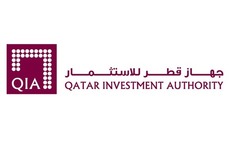
VIDEO: MVision's Mounir Guen
There have been considerable improvement in Asian PE firms’ internal processes covering disclosure, governance and best practice, but the sheer LP demand for exposure to the region could push managers towards unsustainable fund sizes, says Mounir Guen, CEO of MVision
"There will be a gap where the amount of money interested in investing in Asia will exceed what they call the criteria of a good manager. This will push managers to larger funds," Guen said. "The question then is one of discipline and alignment that can potentially get compromised. Even though we have the proper governance and reporting and execution of the business of the GP, it might not be an alignment because the popularity of that GP."
He expects this phenomenon to rear its head over the next 3-5 years as non-Asian investors rush to build their exposure to the region and tap emerging markets growth. In this sense, Guen does not feel that fundraising activity in Asia reflects the full magnitude of the investment opportunity.
"If you look at the penetration of private equity particularly in Asia compared to the US, which also has quite a robust economic type feel to it, it is miniscule," he said. "That in itself presents the fact there will be many more GPs, more larger funds and more activity taking place. When I look at fundraising over the next 10 years it will be very robust and very interesting."
The emergence of domestic LPs is another contributing factor, with Korea's institutional investors expected to quintuple in asset size, Chinese insurers now developing alternatives portfolios, and the rise of sovereign wealth. However, Guen argues that this imbalance between demand and supply is a relatively short-term phenomenon, with the market likely to find equilibrium within five years.
This is in part driven by an evolution in the investment opportunities available. The IPO-oriented approach that has characterized the strategies of many managers in emerging Asia is gradually being replaced by approaches that prioritize influence or outright control.
"This requires operating skills and you aren't so much fixed on the IPO aspect as you are on being able to build earnings and build companies. That mindset and opportunity - it is something investors very much want, we will see more and more of it, and it will allow scalability to take place."
Latest News
Asian GPs slow implementation of ESG policies - survey
Asia-based private equity firms are assigning more dedicated resources to environment, social, and governance (ESG) programmes, but policy changes have slowed in the past 12 months, in part due to concerns raised internally and by LPs, according to a...
Singapore fintech start-up LXA gets $10m seed round
New Enterprise Associates (NEA) has led a USD 10m seed round for Singapore’s LXA, a financial technology start-up launched by a former Asia senior executive at The Blackstone Group.
India's InCred announces $60m round, claims unicorn status
Indian non-bank lender InCred Financial Services said it has received INR 5bn (USD 60m) at a valuation of at least USD 1bn from unnamed investors including “a global private equity fund.”
Insight leads $50m round for Australia's Roller
Insight Partners has led a USD 50m round for Australia’s Roller, a venue management software provider specializing in family fun parks.







